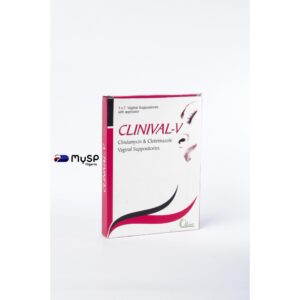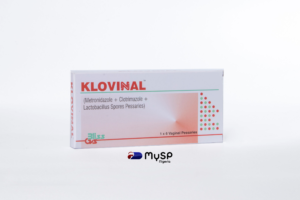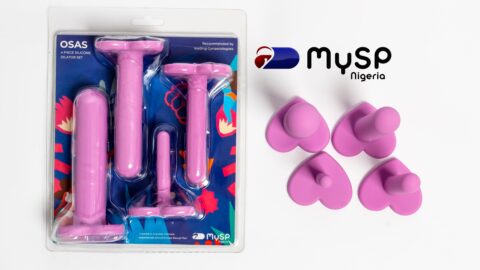Reoccurring Vaginal Infections
Yeast infections can affect people of any age, but some things might make them happen more likely.
Let’s examine the reasons of reoccurring chronic yeast infections and the actions you may take to treat and avoid them.
Root causes of chronic infections
Yeast infections that recur four or more times a year are referred to as recurrent yeast infections.
If the body’s internal environment is conducive to yeast overgrowth, chronic yeast infections may result. The majority of yeast infections are brought on by an excess of Candida. Our bodies naturally contain this kind of yeast.
When there is an imbalance or variance in vaginal flora, persistent yeast infections can develop. Normally, these microorganisms assist in preventing Candida overgrowth. Too much bacteria can be eliminated by antibiotics or douching, which might result in an imbalance or variance.
A balance of healthy microbes is essential for the body. This is when foods like yogurt with live cultures or probiotic pills may be useful. Some individuals believe that while this isn’t recognized as a proven therapy for yeast infections, it can assist to support healthy vaginal flora.
Additionally, Candida loves to flourish in moist environments like perspiration or saliva. Chronic yeast infections can also be brought on by poor hygiene habits, such as skipping daily showers and cleaning your teeth, or by living in an atmosphere that is always humid.
If your immune system is compromised, you run the additional risk of developing recurrent yeast infections. Your immune system can be weakened by the following:
Age, some drugs, and some medical issues
See also: This What Happens If You Stop Having Sex For A Prolonged Period

FemFresh Daily Vagina Wash
Get FemFresh Daily Vagina Wash
Causes of recurring yeast infections
The following are some potential reasons of persistent yeast infections:
1. There was incomplete treatment for the original yeast infection.
Your doctor could advise long-term antifungals if the initial round of therapy for your yeast infection wasn’t successful. Up to six months’ worth of weekly oral or vaginal medicine may be included in this.
2. Spreading the illness from one person to another
Candida infections can occur in the mouth as well as on other skin types. Through skin-to-skin contact, they can spread. This most frequently occurs between nursing mothers and their infants.
Making sure both mom and infant are fully free of yeast infections is essential to preventing recurrent transmissions. While the infections heal, you might have to pump your breast milk and bottle-feed.
3. Sexual behavior
It is possible to transfer yeast infections between sexual partners despite the fact that they are not considered a sexually transmitted infection (STI).
4. It might be beneficial to use dental dams and condoms
Especially if you or your spouse frequently have yeast infections. To prevent Candida, you can also take a shower right after sexual activity (but don’t douche).
5. Both moisture and humidity
Yeast often grows best in moist, warm environments. Wearing wet clothing, living in a humid atmosphere, and perspiration on a regular basis can all promote yeast or fungus growth. Cotton underwear and breathable materials may be beneficial in such conditions.
6. Drug-resistant yeast strains
Even though it’s uncommon, a type of yeast that can withstand standard treatments can be the cause of your persistent yeast infection.
Your doctor can suggest a new antifungal drug and a broader strategy if the therapy for your yeast infection isn’t working. This might involve dietary supplements and lifestyle adjustments.
7. There is no yeast infection.
The signs of a yeast infection can be mimicked by a few disorders, including; Skin allergies, STIs, and bacterial vaginosis
8. Ureaplasma
It’s crucial to visit your doctor if you have a yeast infection for the first time or if it recur. To ascertain whether the suspected yeast infection is caused by another ailment, they might collect a sample (culture) from the affected area.
See also: 8 Things That Women Actually Crave in Bed
Treating Recurring Vaginal Yeast Infection
Typically, vaginal yeast infections may be treated with over-the-counter suppository drugs.
You might want to contact your doctor if this is your first yeast infection or first recurrent yeast infection, though. They can eliminate the chance that there are more infections.
After treatment, maintaining excellent hygiene practices and fostering a normal vaginal bacterial balance can help prevent genital yeast infections from recurring. Here are a few advices:
- Put on loose-fitting, cotton garments.
- Take a shower each day.
- Any clothes and towels you used while you were ill should be washed and sterilized.

Clinival-V Vaginal Pessary
Get Clinival-V Vaginal Pessary
How to deal with persistent yeast infections
The discomfort linked to a yeast infection might be eliminated more quickly if it is treated right away. If your yeast infection seems to be lingering, visit your doctor.
It’s crucial to take the appropriate actions to ensure that you permanently eradicate the condition once your doctor has confirmed the diagnosis.
Additionally, this will aid in the management of any chronic instances. To treat persistent yeast infections, think about the following suggestions:
Even if your symptoms disappear before the drug wears off or if you don’t immediately feel that it is working, make sure to finish the entire prescribed dosage of treatment.
If you engage in sexual activity, suggest getting your spouse tested for candida as well. This will aid in halting the spread of the illness.
Regularly replace and wash your clothes and textiles, such as towels and sheets, separately from other articles of clothing. To the wash, you might want to add bleach or distilled white vinegar.
To prevent the spread of yeast cells or reinfection, wash things that come into touch with contaminated regions very away after use.
If your symptoms worsen or if the illness reappears after treatment is finished, call your doctor.

Klovinal-Treatment for chronic toilet infection
Get Klovinal-Treatment for chronic toilet infection
Conclusion
Although complicated, yeast infections can be treated. It will merely take longer if the yeast infection is severe or recurrent. If symptoms of a yeast infection worsen or return, contact your doctor.












Comments are closed.
[…] > Reoccurring Vaginal Infections […]